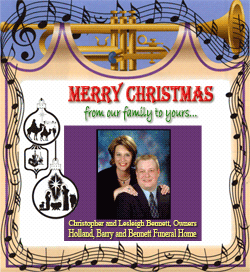|
 On a London stage decorated to look like Les Cousins, the Soho folk
club where Jansch held court in the 1960s, they played his songs and
others that had inspired him, and reminisced about "a magical man,
an occasionally shambolic man," in the words of Martin Simpson. On a London stage decorated to look like Les Cousins, the Soho folk
club where Jansch held court in the 1960s, they played his songs and
others that had inspired him, and reminisced about "a magical man,
an occasionally shambolic man," in the words of Martin Simpson.
Jansch died in October 2011 of lung cancer at the age of 67 and
Tuesday would have been his 70th birthday.
If he never achieved huge popular fame to match his talent, his
standing amongst his peers was evident in a Royal Festival Hall
line-up that was a virtual Who's Who of British folk, among them
Ralph McTell, Donovan and members of Pentangle, the folk-jazz group
with whom he found his greatest commercial success.
Neil Young, who once described Jansch as the Jimi Hendrix of
acoustic guitar, was not present in body but appeared on a large
screen in a specially-recorded video in which he played "Needle of
Death", Jansch's tale of heroin addiction that Young has
acknowledged as the inspiration for his own classic "Needle and the
Damage Done".

The Canadian told how in his early days as a folksinger in Toronto,
he played Jansch's albums endlessly.
The Glasgow-born Jansch cut his teeth in Edinburgh before
hitchhiking down to London in the early 1960s and quickly made a
name for himself in clubs such as the Troubadour and Les Cousins.
His playing brought together folk, blues and jazz with a muscular,
finger-picking style, and also drew in some Middle Eastern and Asian
flavours picked up on his travels. He brought out a string of albums
such as "Jack Orion" and "Rosemary Lane", that were to be a huge
influence on the likes of guitarist Jimmy Page, later to form Led
Zeppelin.
He was still recording and touring till shortly before his death — his last performance being with a reformed Pentangle at the Royal
Festival Hall in August 2011, three months before he passed away.
"He was what we had — the Americans had Dylan, who picked up Woody
Guthrie, we had Bert, who found the hidden music of these islands," McTell told Reuters after the show.
[to top of second column] |

"He was sexy, he was cool. Women found him alluring, men admired him
for that. I treasure the friendship I had with him for 40 years."
McTell kicked off the concert with "Angie", an intricate
instrumental that was one his best known songs. Donovan recalled
hanging out with Jansch in his kitchen. "He taught me his licks, not
a great looker but he got all the chicks," he said in short poem
written for the occasion.
Another highlight came from bassist Danny Thompson, a former
Pentangle member and stalwart of the British folk scene, who played
Charlie Mingus' "Goodbye Pork Pie Hat", a song he said Jansch loved.
Pentangle, featuring original members Jacqui McShee, Thompson and
drummer Terry Cox, closed off the first half with "Poison", a song
that alludes to Jansch's battle with booze. They were accompanied by
former Suede guitarist Bernard Butler, who worked with Jansch in his
later years as a new generation switched on to him.
Martin Carthy, the godfather of British folk, played "Blackwaterside",
a traditional Ulster song that Jansch made his own. The song would
later became the basis of Led Zeppelin's "Black Mountain Side".
Plant, dressed in black, was a far cry from the rock god who had
fronted Zeppelin. He cast a spell with a moving version of "Go Your
Way My Love.". Speaking to Reuters later, he acknowledged that
Jansch had helped to open a treasure trove of blues for the band as
well as inspiring their folkier side.
"We all came to a similar place, but we concentrated on different
levels. Bert was digging up stuff, blues from Mississippi, for
example. He was a digger for us all," he said.
The show wrapped up with the massed ranks of musicians singing a
rollicking "Strolling Down the Highway" which blew away any sense of
melancholy.
(Editing by Andrew Heavens)

|